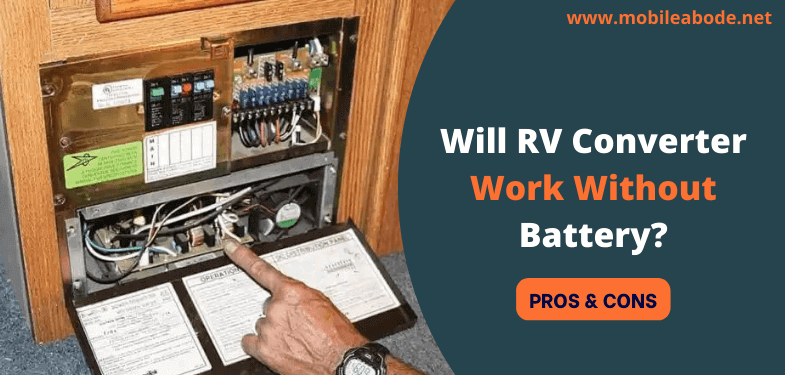An RV converter is a great way to power your RV without using a battery. However, you may be wondering if an RV converter will work without a battery.
The answer is yes! An RV converter can work quite well without a battery, as long as you have the proper setup. Keep reading to learn more about how to use an RV converter without a battery.
RV Converter Work Without Battery
An RV converter is a device that converts household AC into DC. This is the type of power that your RV needs to run its lights, appliances and other electronics.
RV converters are typically used in conjunction with a battery. The battery stores power that can be used when there is no hookup available or when you are dry camping. However, it is possible to use an RV converter without a battery.
There are a few things to keep in mind if you are using an RV converter without a battery.
- First, you will need to have a good quality power source. This could be a shore power connection or a generator.
- The second thing to keep in mind is that your RV will not have any power storage without a battery. This means that if there is an outage, your RV will be without power until the power comes back on.
- Finally, you will need to be careful not to overload your RV converter because without a battery it act as a buffer, an overloaded converter could damage your RV’s electrical system.
Now that you know how to use an RV converter without a battery.
How does an RV converter work without a battery installed in the system?
As long as you have a good quality power source, an RV converter can work quite well without a battery.
The converter will take power directly from your shore power connection or generator and convert it into DC power for your RV. This can be a great way to get around the high costs of batteries and it can also provide you with a more reliable power source.
Of course, you will need to make sure that your power source is strong enough to handle the load of the converter but in most cases, this should not be an issue.
Why would you want to use an RV converter without a battery?
There are a few reasons why you might want to use an RV converter without a battery.
- The first reason is that batteries can be expensive and they need to be replaced every few years. If you are using your RV infrequently, it may not make sense to invest in a battery.
- Another reason to use an RV converter without a battery is that batteries can add a lot of weight to your RV. This can be an issue if you are trying to save on weight or if you are towing your RV behind another vehicle.
- Finally, using an RV converter without a battery can provide you with a more reliable power source. If you are using shore power or a generator, you will not have to worry about the battery running out of power.
What are some of the benefits of using an RV converter without a battery?
There are a few benefits of using an RV converter without a battery.
- First, you will not have to worry about the cost or maintenance of a battery.
- Second, you may be able to save on weight by not having a battery in your RV.
- Third, you will have a more reliable power source if you are using an RV converter without a battery.
- Finally, you may be able to avoid some electrical issues by not having a battery in your RV.
Of course, there are also a few things to keep in mind when using an RV converter without a battery.
Are there any drawbacks to using an RV converter without a battery?
The main drawback of using an RV converter without a battery is that you will not have any power storage. This means that if there is a power outage, you will not have any backup power.
Additionally, you may find that your RV converter doesn’t work as efficiently without a battery, and you may have to run it for longer periods to get the same amount of power.
FAQs – RV converter work without battery
How do I test my RV converter?
To test your RV converter, you will need to connect it to a power source and turn it on. You should then check the voltage output of the converter to make sure it is working properly.
Does an RV converter have a fuse?
Most RV converters have a built-in fuse that will protect the converter from overloading. However, it is always a good idea to check with your RV dealer or converter manufacturer to be sure.
Do I need a fuse between the battery and the converter?
It is not necessary to have a fuse between the battery and the converter. However, if you have a battery in your RV, it is always a good idea to have a fuse between the battery and the converter. This will protect your electrical system from damage if there is an issue with the converter.
Bottom Line:
So, if you’re looking for a way to power your RV without a battery, an RV converter is the answer. Converters are available in both 12-volt and 24-volt models, so be sure to choose the right one for your needs.
And finally, don’t forget to keep that converter plugged into shore power when you’re not using your RV; otherwise, you’ll run down your batteries!

